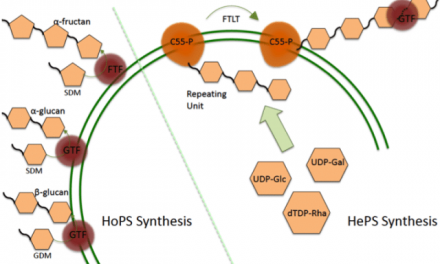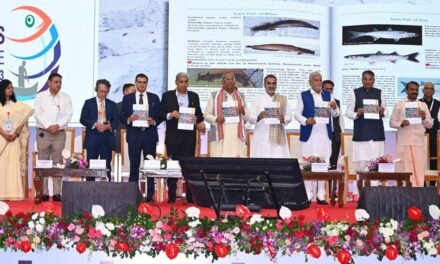The World Spice Congress, one of the largest events in the spices industry, brought together all the key stakeholder of the global spice industry under one roof from 15th to 17th September.
The spice industry should work together to explore new markets, strengthen the existing ones and focus on value-added products to reach USD 10 billion exports by 2030, Union Minister for Commerce and Industry Piyush Goyal said at the World Spice Congress 2023.
“Currently our total exports of spices is at USD 4 billion. Rather than exporting spice in the raw form only, we should look for value-added products as we go forward. We should start building up more markets by exploring new markets and strengthening the existing ones. We should look at creating factories for value-added products to reach USD 10 billion exports by 2030 for the spices sector,” Goyal said addressing the World Spice Congress 2023.
The 14th edition of the World Spice Congress (WSC) commenced in Vashi, Navi Mumbai. This three-day event was organized by the Spices Board of India in collaboration with several trade bodies and export forums. India, often referred to as the ‘Spice Bowl’ of the world, is known for producing high-quality, rare, and medicinal spices. The World Spice Congress (WSC) aimed to create new opportunities for the international trade of Indian spices.
As an example, the minister stated that during the Covid-19 pandemic, demand for turmeric increased dramatically because to its medical benefits. “If we focus all our energy on tumeric by developing value-added products, turmeric exports alone have the potential to touch USD 2 billion,” he stated. The minister also proposed developing ‘Bharat’ as a brand or certification for high-quality and premium spice items.

“Let’s create a ‘Bharat’ brand or some certification that can help in associating high quality spices products to the country. Don’t export any sub-standard products that can harm the image of the country. The industry should focus on innovation, productivity, sustainability and exclusivity and market spices as a premium product when it goes to the world market,” Goyal said.
Further, Goyal said that over 35 million (or 3.5 crore) people of Indian origin are living overseas, who can themselves add a lot of value to the spice business. “Indian diaspora living overseas can help in expanding the spice consumption to others communities. In fact they can become your brand ambassadors and help the industry to grow its market internationally,” he stated.
The minister congratulated the Spices Board on conducting the Spice Congress after a hiatus of 7 years and also requested it to organise a world class exposition, symposium and conference of the spice industry in Delhi in 2024, inviting all players and international competitors and buyers to capture the imagination of the world.
“Spices represent the rich cultural heritage of our country. Therefore, the industry should invite all its competition and buyers from all over the world in larger numbers in the 2024 edition of the World Spice Congress and also make it into an annual event,” he added.
“Now is the time for the spices industry to go that extra mile to capture the world market”, said the minister.

As the biggest producer and consumer of spices, we should also encourage other countries to increase their spices consumption. We have a lot to offer, whether it is saffron from Kashmir or Kerala’s unmatched black pepper, Gujarat’s ginger or Nagaland’s chili, there is so much that India has to offer to the rest of the world. We should work to make India the preferred source of spices,” Goyal added.
Additional Secretary, Dept. of Commerce, Government of India, Amardeep Singh Bhatia, during his inaugural address stated that India’s spice export which is $4 billion at present is expected to reach $10 billion by 2030.
“Traditionally India has been the spices centre of the world. In order to ensure that India continues to maintain its traditional strength there are several things to work on in the entire chain of production from growers to marketers,” he added. “It is a shared responsibility of the Government and the Spices Board to come up with schemes and programmes to facilitate testing labs, assessment quality standards, etc. This three-day event will give lots of business opportunities to all the stakeholders, delegates, exhibitors and producers,” he said.
Highlighting the potentials of the Indian spices industry, D Sathiyan, Secretary, Spices Board, said, “The spices legacy is part of human culture. India is the spice bowl of the world. There is tremendous potential to explore product development, biotech, etc. in India. More than 75 spices are grown in India and each state has spices to offer. The future of the world spice industry will be discussed at the three-day World Spice Congress.”
The event was followed by the technical session on Country perspective of the Spice Industry and Global opportunities. The second session on Evolving market requirements for spices trade was focused on the adaptation to global supply chain resilience, market research, and importance of consumer insights, agility and responsiveness for success in the evolving spice market.
The theme for WSC 2023 was “VISION 2030: Sustainability, Productivity, Innovation, Collaboration, Excellence, and Safety” (S.P.I.C.E.S). The sessions addressed crops and market forecasts and trends; food safety and quality standards and certifications; trends and opportunities for spices in pharmaceutical, nutraceutical, innovative and preventive health care products; spice-based seasonings and functional food products; ready-to-use/cook/ drink products; trends and opportunities for spice oils and oleoresins, consumer preferences and emerging trends; reliability and integrity in supply chain management, international requirements on packaging, trends and opportunities in global spice markets, etc.

















